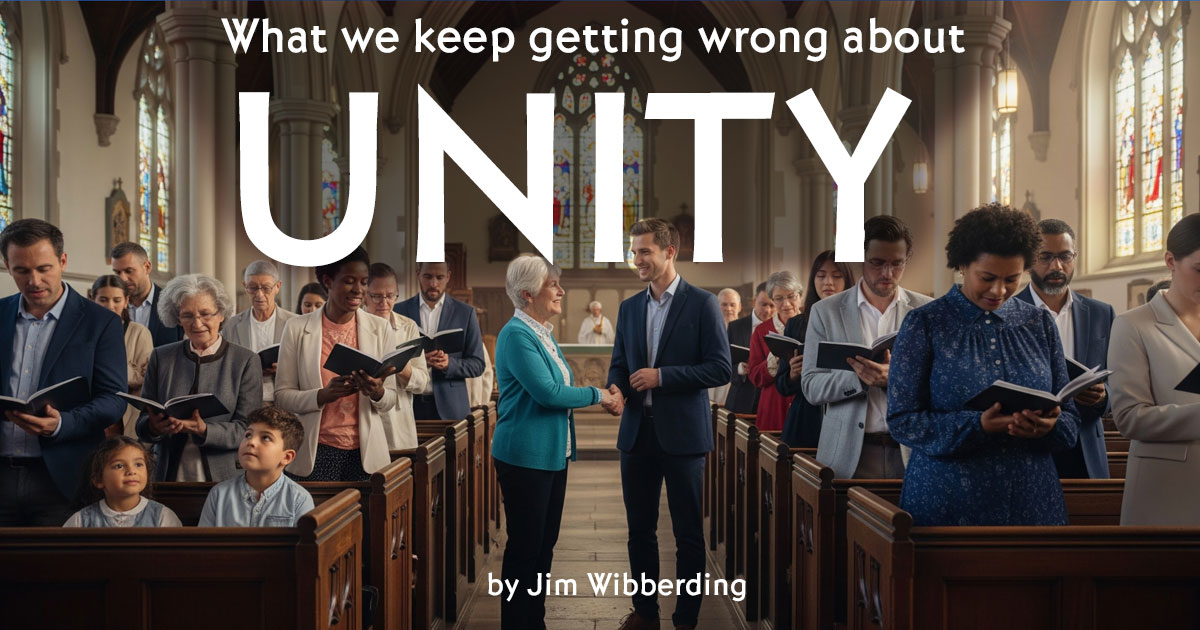Andrews University ’s Center for Innovation & Entrepreneurship recently received a US$95,000 grant from the Hunter Foundation, a charity based in Niles, Michigan, United States. The funds will be used to create a two-year summer internship program… Source: https://adventist.news/news/andrews-university-receives-hunter-foundation-grant
God First: Your Daily Prayer Meeting #1160
"If you believe, you will receive whatever you ask for in prayer" (Matthew 21:22, NIV).
Tag someone in need of prayer, and kindly share your prayer requests here:
https://wkf.ms/3DBuapQ Source: https://www.youtube.com/watch?v=BuK3Tz4KbAc
Marlene’s Most Wonderful Day
Baptism is more than a symbol—it is a declaration of faith and a new beginning with Jesus. After completing the Faith of Jesus Bible Study Guide, Marlene chose to follow the example found in Acts 8 by giving her life fully to Christ. Through baptism, she experienced forgiveness, joy and the assurance that she will never walk alone again. Discover more life-changing stories and resources at https://awr.org. Watch Marlene’s full story here: https://youtube.com/watch?v=E9wQwYAs1Ro #AWR360 #BroadcastToBaptism Source: https://www.youtube.com/shorts/pt9wVMmTYEA
66-Year-Old Adventist Sets New Guiness World Record
Christopher Bennett, a 66-year-old Adventist from New Zealand, set a new record in the Guinness Book of Records for the fastest known time for a veteran, becoming the oldest person to circumnavigate the globe by bicycle. Not only that, but Benne… Source: https://adventist.news/news/66-year-old-adventist-sets-new-guiness-world-record
5: God Fights for You – It Is Written – Discussions with the Author

Join It Is Written Sabbath School host Eric Flickinger and this quarter’s author, Dr. Barna Magyarosi, as they provide additional insights into this week’s Sabbath School lesson.”
 (0)
(0)5: God Fights for You – Hope Sabbath School Video Discussion
View an in-depth discussion of The Lord Fights for You in the Hope Sabbath School class led by Pastor Derek Morris.
Click on the image below to view the video:
<
With thanks to Hope Channel – Television that will change your life.
 (0)
(0)Salmo 33:6,9 – Apri la porta del tuo cuore
"I cieli furono fatti dalla parola del Signore, e tutto il loro esercito dal soffio della sua bocca. […]. Poiché egli parlò, e la cosa fu; egli comandò, e la cosa apparve". 📖 Salmo 33:6,9
—
💌 Apri la porta del tuo cuore
🗣 Speaker: Alessia Zagara Source: https://www.youtube.com/watch?v=V2B12luUP0o
God is Good 100%
Because God is good, we can trust in His wisdom, His promises, and can believe Him omniscient. God's goodness supports everything we know about Him. Just ask Him! Watch this video and then ask God in prayer if He is good. Source: https://www.youtube.com/shorts/nUYwIXQ4doc
What We Keep Getting Wrong About Unity

by Jim Wibberding | 28 October 2025 | Picture yourself happily preparing for church. As you work the buttons down your tummy, you enjoy the feel of your best-fitting shirt forming to your body. Your skirt or pants stretch silkily toward your favorite shoes. After a few more tugs on your hair or a hand […] Source: https://atoday.org/what-we-keep-getting-wrong-about-unity/
Wednesday: Free Choice
Daily Lesson for Wednesday 29th of October 2025
Read Deuteronomy 20:10,15-18; Deuteronomy 13:12-18; and Joshua 10:40. How does the law of warfare and the procedure against an idolatrous town in Israel, expressed in Deuteronomy, help us understand the limitations of total destruction in the war that the Israelites were engaged in?
The Hebrew text uses a unique term to describe the destruction of people in war: cḥerem. This term refers to what is “banned,” “damned,” or “dedicated to annihilation.” Most of the time, it designates complete and irrevocable placement of people, animals, or inanimate objects in God’s exclusive domain, which in warfare involved, in most cases, their destruction.
The concept and practice of cḥerem as a total eradication of a people in war needs to be understood in the light of Yahweh’s conflict with the cosmic forces of evil, where His character and reputation are at stake.
Again, since the emergence of sin in the world, there is no neutrality: one is either on God’s side or against Him. One side leads to life, eternal life, and the other to death, eternal death.
The practice of total destruction describes God’s righteous judgment against sin and evil. God uniquely delegated the execution of part of His judgment to His chosen nation, ancient Israel. The devotion to destruction was under His tight theocratic control, limited to a certain period of history, the conquest, and to a well-defined geographical area, ancient Canaan. As we saw in yesterday’s study, those who came under the ban of destruction consistently rebelled against God’s purposes and defied them, never repenting either. Therefore, God’s decision to destroy them was neither arbitrary nor nationalistic.
Moreover, Israel would expect the same treatment if they decided to adopt the same lifestyle as the Canaanites (compare with Deuteronomy 13:1-18). Even if it seems as though the groups situated on either side of the divine war are pre-defined (the Israelites are to inherit the land and the Canaanites are to be destroyed), there is the possibility to move from one side to the other, as we will see in the cases of Rahab, Achan, and the Gibeonites.
People were not arbitrarily given protection or placed under a ban. Those who benefited from a relationship with Yahweh could lose their privileged status through rebellion, and those under the ban could submit to the authority of Yahweh and live.
|
What are the spiritual implications of the Canaanites’ defiance of God for our context today? That is, what are the consequences of our free choices for us personally? |
 (0)
(0)- « Previous Page
- 1
- …
- 159
- 160
- 161
- 162
- 163
- …
- 4846
- Next Page »


